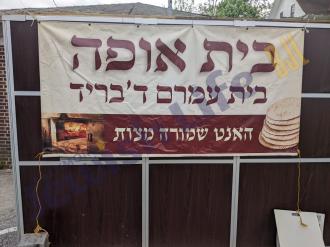The University of Oregon’s student senate passed a resolution on Wednesday endorsing the boycott, divestment, and sanctions (BDS) campaign against Israel, and targeting several companies over their alleged complicity in “the Israeli occupation of Palestine.”
The measure, which passed by a vote of 12 in favor and six against, calls on the Associated Students of the University of Oregon (ASUO) to divest and blacklist products from companies including Sabra, Tribe, Hewlett-Packard Company, Sodastream, Motorola, Caterpillar, G4S, and Elbit Systems.
It was brought forth by Students United for Palestinian Equal Rights (SUPER) and endorsed by 30 groups, among them the school’s Multicultural Center and associations representing Arab, Native American, Southeast Asian, Muslim, Vietnamese, LGBTQA, and intersectional feminist students.
The bill was debated in a meeting that lasted nearly three hours, with more than 200 people listening to students argue in support of and opposition to its contents. Several speakers referenced an anti-BDS petition launched by the Ducks For Israel club, which gathered more than 850 signatures from students representing over 170 campus groups.
Others took aim at the legislation, which described BDS as an “anti-racist human rights movement” that opposes antisemitism, for not disassociating itself from the global BDS campaign, which critics accuse of denying the Jewish people’s right to self-determination.
Concerns were raised about the resolution’s failure to condemn terrorism against Israelis, and to address allegations of human rights abuses by other foreign nations. Some students also criticized the time allotted to debate the measure, which was first proposed by SUPER at a senate meeting the previous week.
“The fact that this bill was introduced with less than a week to consider it, and the Jewish community was not even approached to discuss it, is a prime example of a lack of transparency,” said student Elysa Gurman. It “effectively silenced the discussion that needs to take place before an issue so complicated can be voted on.”
Jordan Allison, who spent two years on the senate, expressed her concern that the legislation may harm relations between students with opposing viewpoints on campus.
“My obligation as a senator … is to students, not to a foreign nation, so I want to decide what is creating division on our campus,” she said. “Resolutions aren’t super binding, so to me, what this resolution would do mainly is just create division between two groups on campus.”
Allison also cautioned that the measure contains language that is not viewpoint neutral, and may consequently be struck down by the ASUO Constitutional Court.
Her concerns were echoed by Senator Keegan Williams-Thomas, who noted that “there is a potential for some of the clauses in this to be found viewpoint non-neutral by the constitution court.”
However, Williams-Thomas urged his peers to nonetheless vote on the bill, as “everyone who’s worked on this thinks that this is … largely a matter of solidarity, rather than actually withholding funds from Sabra hummus.”
Responding to claims that the legislation only focused on one party in the Israeli-Palestinian conflict, he argued that this was because the University of Oregon does not have material relations with the Palestinian terrorist group Hamas.
“If the university of oregon had a lot of financial relationships with Hamas, I would be concerned about it, I would be opposed to it, and I would want to legislate against it,” he said. “However, that is not the case.”
The senator also asserted that “the BDS movement isn’t inherently antisemitic,” and dismissed opposing claims — primarily put forth by Jewish students — as “a little bit ridiculous.”
Other students emphasized that the resolution lends credence to a campaign that helps people of color and abides by the demands put forth by some Palestinian peers on campus.
After the measure’s passage, SUPER applauded students for taking a stand against “colonialist oppression” in a statement shared on social media on Thursday.
They thanked their supporters, as well as students “who spoke in favor of both sides,” crediting them for “being a part of the ongoing discussion on this topic, and for remaining civil and respectful throughout the night.”
In its own statement, Ducks For Israel said it was “saddened by the lack of research done by the ASUO to understand that this resolution is one-sided and hurtful to many students on this campus.”
They pledged to “continue working together to mend the division that this BDS resolution has already created on this campus,” and to hold the ASUO accountable “for the many concerns we had that you said would not occur following the BDS resolution.”
One student who attended the debate, Maddie Newman, said she felt proud of how some student leaders mobilized against the bill, but disturbed by the implications of its passage.
“I am uncomfortable because I was told what anti semitism is and how I should react to it,” she wrote on social media. “I am uncomfortable because majority of college campuses that endorse BDS see an increase in anti-semitic acts.”
“I am uncomfortable because many of my peers told me my fear or worry was invalid,” Newman added. “I am uncomfortable because majority of our ASUO senators did not represent their constituents last night, they listened to 60 voices instead of over 900.”















